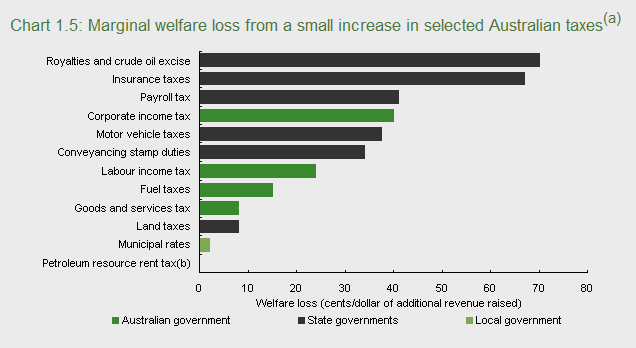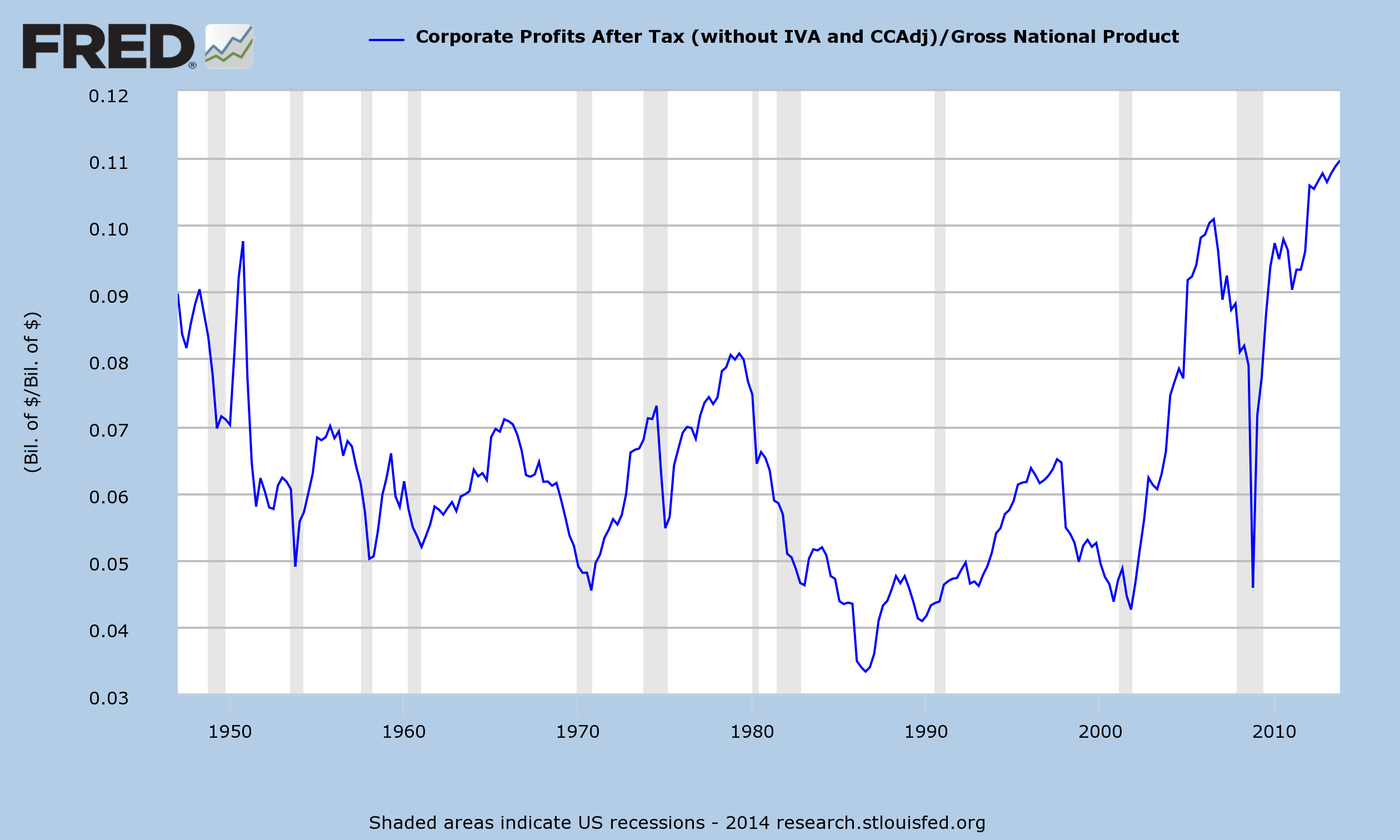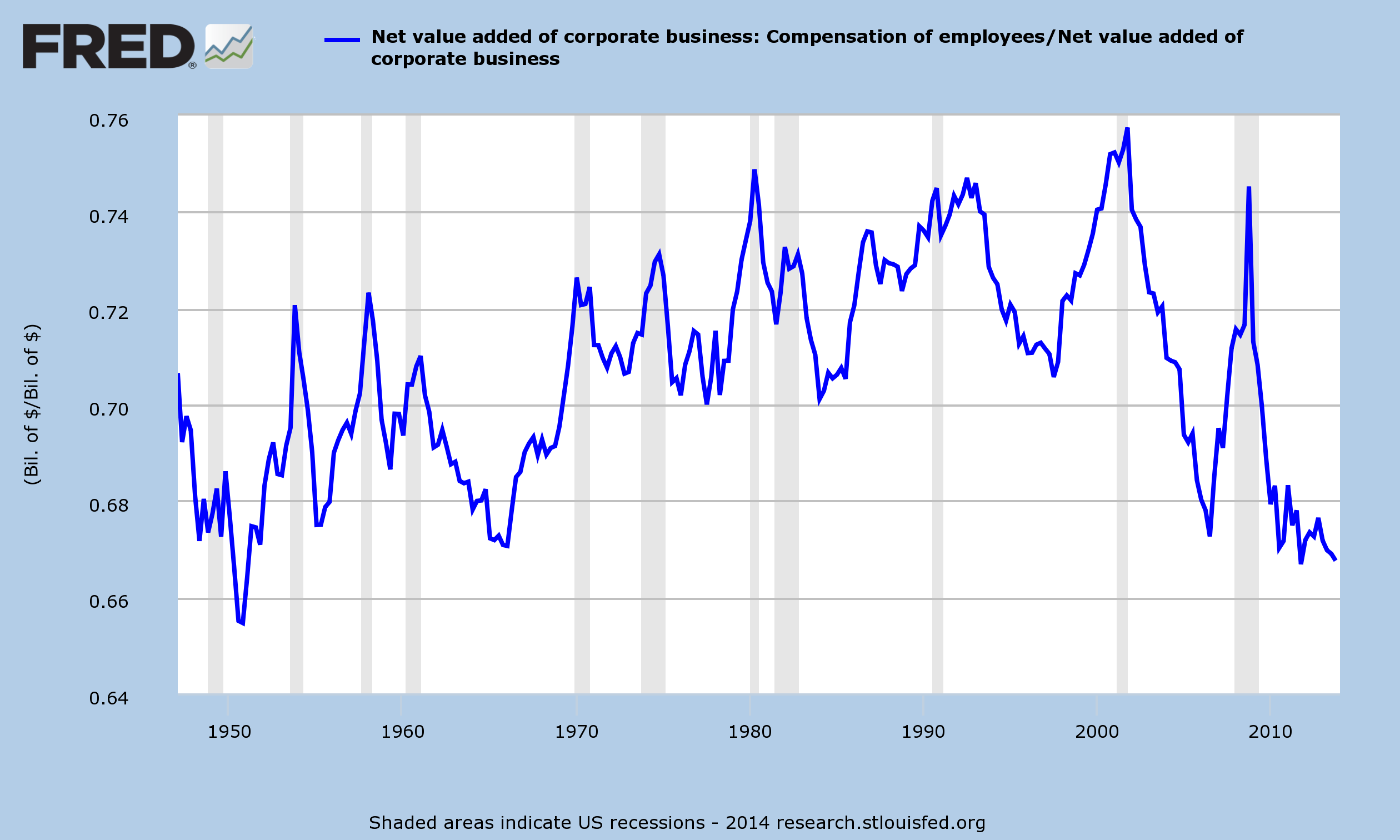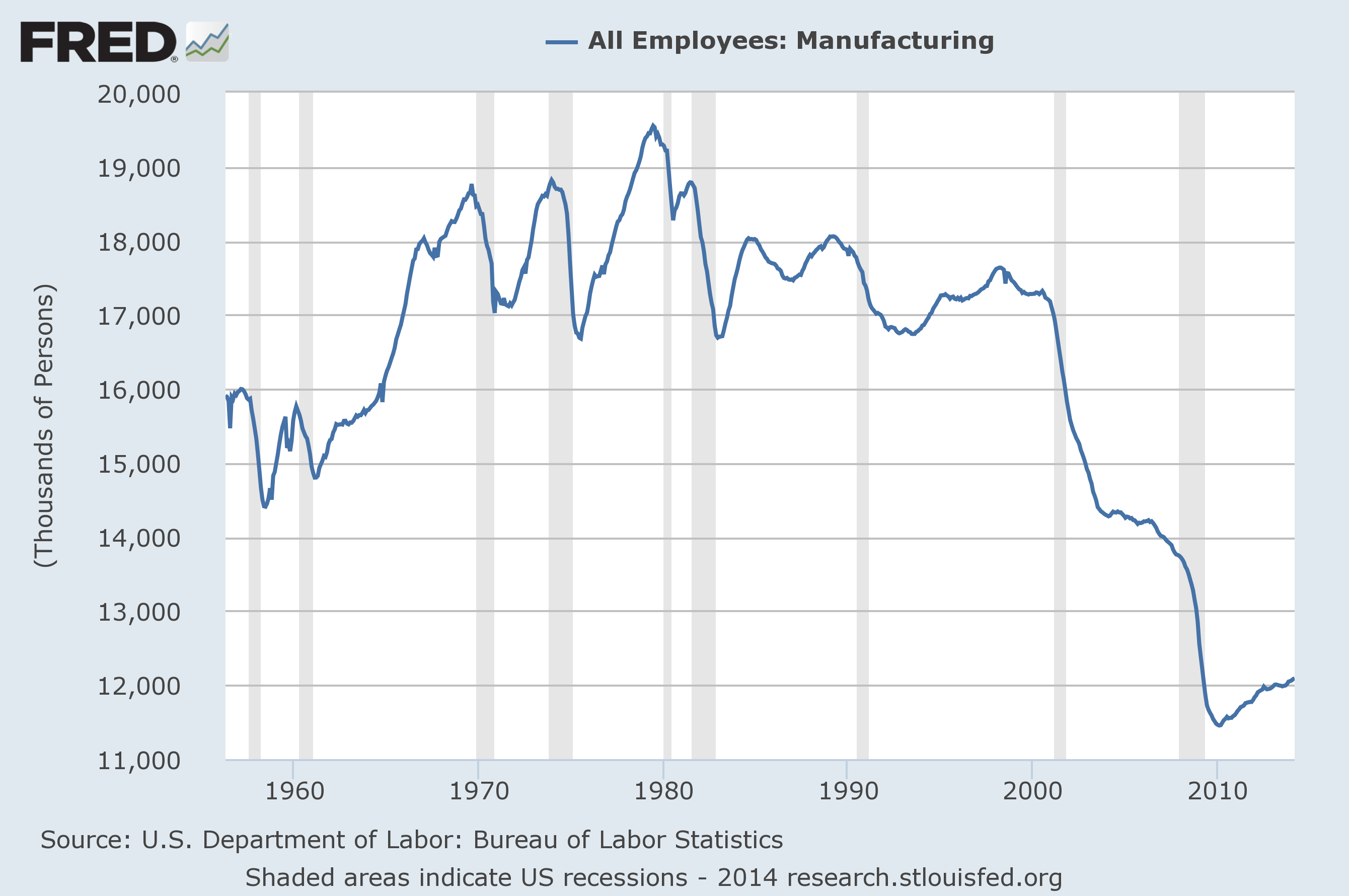3 Reasons to be suspicious of the inequality debate
By Colin Twiggs
May 27th, 2014 2:30 a.m. EDT (4:30 p:m AEST)
These extracts from my trading diary are for educational purposes. Any advice contained therein is provided for the general information of readers and does not have regard to any particular person's investment objectives, financial situation or needs and must not be construed as advice to buy, sell, hold or otherwise deal with any securities or other investments. Accordingly, no reader should act on the basis of any information contained therein without first having consulted a suitably qualified financial advisor. Full terms and conditions can be found at Terms of Use.
My concerns with the inequality debate are twofold:
- The poor are seldom rescued from poverty by redistribution. Raising taxes on the rich to bolster welfare payments increases dependence of the latter on government. While this may be a sound political strategy to garner votes, dependence on handouts robs people of their self-respect and foments other social issues. The welfare system should focus more on assisting the disadvantaged to become independent: teaching skills, improving access to higher education, and providing support for those striving to achieve autonomy.
- Progressive taxes on the rich foster resentment at the unequal treatment and encourage tax evasion/avoidance. Raising income taxes also acts as a disincentive to produce further income. Any tax acts as a disincentive, but income taxes are particularly inefficient as the following chart from the Henry Review shows. Taxes collected from raising income tax rates often fall short of expectations, with higher taxes acting as a handbrake on economic growth. Past attempts at taxes on wealth, on the other hand, have proved largely impractical.

Marginal welfare loss is the loss in consumer welfare per dollar of revenue raised for a small increase in each tax (the extent of compensation required to restore consumer satisfaction reflects the distorting effect of the tax on the economy). Taxes at the top of the graph are the most inefficient in terms of outcomes, while those at the bottom achieve the greatest net benefit.
I should explain that my attitude to welfare is shaped by my own experience. My mother was widowed when I was four and faced the daunting prospect of raising children on her own. She went back to work and, because of her circumstances, was offered a partial interest rate subsidy (on a mortgage) by the local municipality. This enabled her to build a modest home and raise four children, who (apart from myself) grew up to make a useful contribution to society. Without assistance, I shudder to think how we would have fared. But I appreciate that the help offered was to restore our independence, rather than foster ongoing dependency and a sense of entitlement.
When I hear President Obama talk of the top 1%'s share of "our income" or their share of "our nation's wealth" I do a double-take. It is not "our" income or wealth, but "theirs". We have not earned it and have no claim to the income or assets of others other than that they pay their fair share of taxes. And shifting a disproportionate share of taxes onto them is just as misguided and immoral, in my opinion, as exploiting the less fortunate. For an economy to succeed you need a healthy partnership between the haves and have-nots, where both will benefit from prosperity. Not like the present tug-of-war, with abuses and mistrust on both sides. Raising taxes would drive a further wedge between the two sides rather than restore trust and cooperation. We need to seek a win-win outcome, rather than an outcome where all of us will lose.
In my opinion the inequality debate and higher taxes are a red herring, designed to distract the public from the real issue: globalization and the insidious partnership between large corporations and their Asian suppliers. Globalization opened up new export markets for corporations while lowering input costs through access to cheap labor. On its own, globalization is manageable, but politicians turn a blind eye to currency manipulation by Asian exporters like China. By saying much but doing little, they allow a continual drain of jobs to offshore markets. Many corporations silently welcome a weak RMB because it lowers the cost of imports while enabling others to make offshore investments and acquisitions cheaply with the strong Dollar.
Corporate profits as a percentage of GNP have soared...

...while manufacturing workers suffer from a shrinking job market and lower wages.

If you want to fix inequality, don't raise taxes. Instead, reduce progressive tax rates while closing many of the loopholes to create a level playing field. But, most importantly, end currency manipulation to ensure that the Dollar trades at a fair, market-clearing rate. That should help regain international competitiveness, go some way to revive a struggling manufacturing sector...

... and restore jobs lost over the last two decades.
More....
When you want to help people, you tell them the truth. When you want to help yourself, you tell them what they want to hear.
~ Thomas Sowell

Author: Colin Twiggs is a former investment banker with almost 40 years of experience in financial markets. He co-founded Incredible Charts and writes the popular Trading Diary and Patient Investor newsletters.
Using a top-down approach, Colin identifies key macro trends in the global economy before evaluating selected opportunities using a combination of fundamental and technical analysis.
Focusing on interest rates and financial market liquidity as primary drivers of the economic cycle, he warned of the 2008/2009 and 2020 bear markets well ahead of actual events.
He founded PVT Capital (AFSL No. 546090) in May 2023, which offers investment strategy and advice to wholesale clients.
